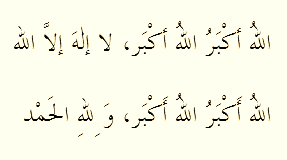It is reported from Nu’aym b. Hammâd:
‘Abdullah b. Al-Mubârak used to often stay at home, so he was asked, “Don’t you get lonely?” He replied, “How could I get lonely when I am with the Prophet – Allâh’s peace and blessings be upon him (i.e. I read his hadîth)?”
Also on the authority of Nu’aym b. Hammâd:
It was once said to ‘Abdullah b. Al-Mubârak, “O Abû ‘Abd Al-Rahmân, you often sit alone at home.” He said, “I am alone? I am with the Prophet – Allâh’s peace and blessings be upon him – and his Companions.” Meaning: reading hadîth.
Ibn ‘Asâkir, Târîkh Dimishq Vol. 32 p458.
Shaqîq b. Ibrâhîm reports:
It was once said to ‘Abdullah b. Al-Mubârak, “After you have prayed with us you don’t sit with us?” He replied, “I go and sit with the Sahâbah and the Tâbi’în.” We said, “And how can you sit with the Sahâbah and Tâbi’în (when they have all passed away)?” He replied, “I go and read the knowledge I have collected, I find their narrations and deeds. What would I do with you? You sit around backbiting people.”
Al-Dhahabî, Siyar A’lâm Al-Nubalâ` in his biography of ‘Abdullah b. Al-Mubârak.

